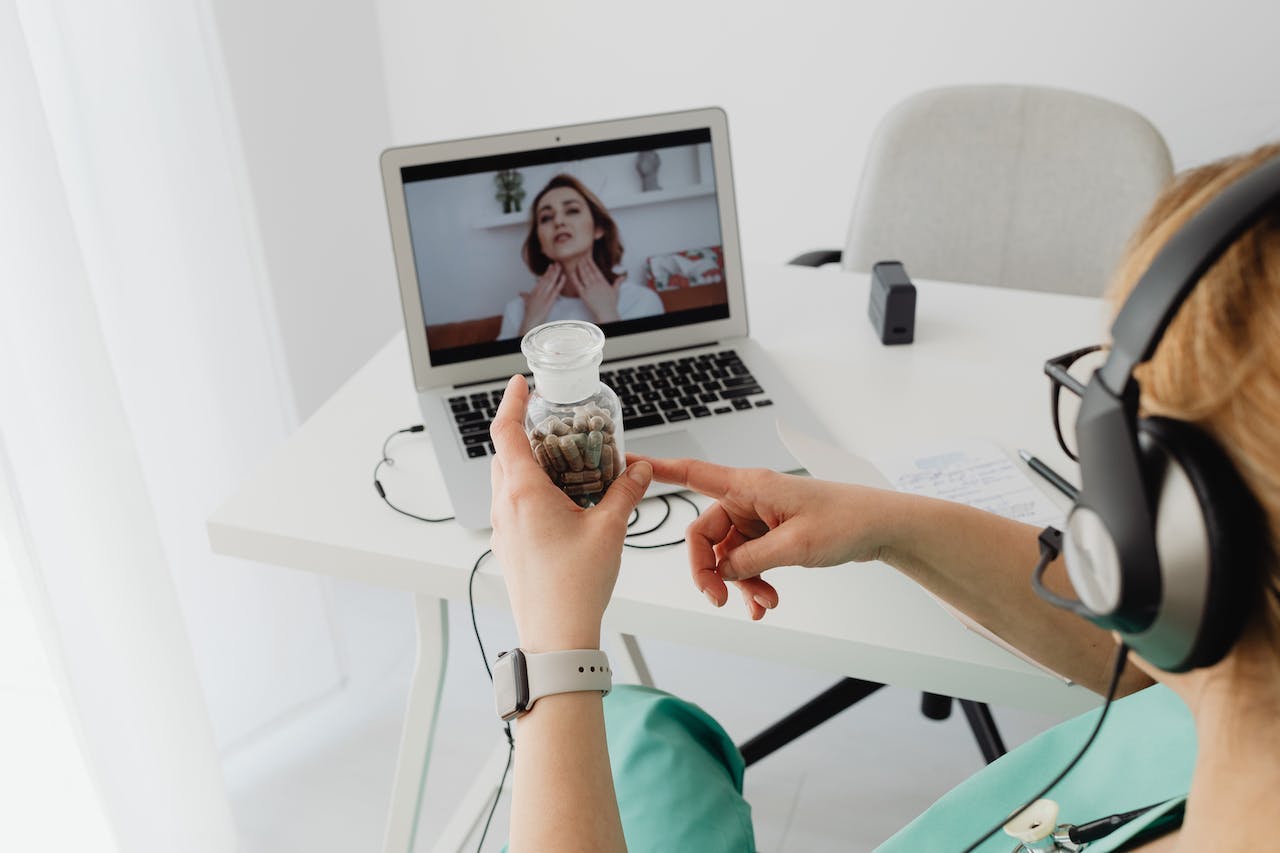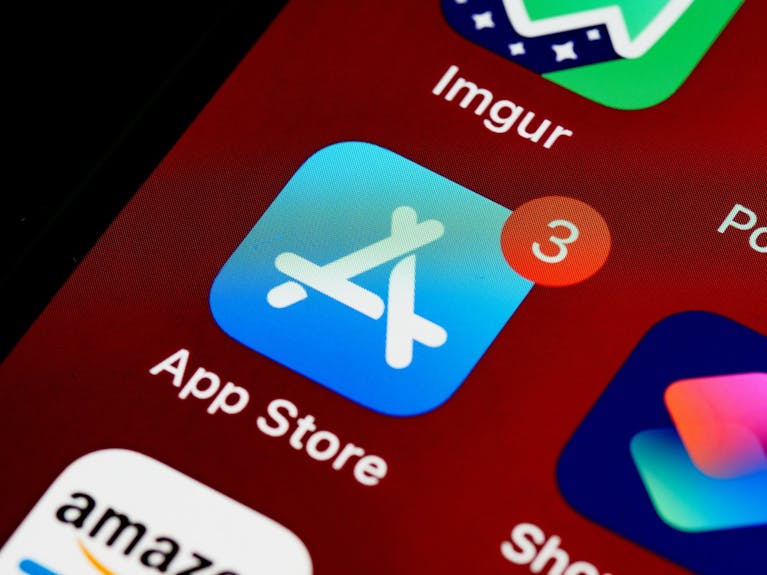Revolution is the process of mobile devices that have advanced innovations, which boosts the growth of several sectors and creates more opportunities. In the healthcare sector, revolution is making changes to develop the advanced level of healthcare mobile apps. Moreover, Mobile healthcare apps make it easy for your physician to monitor your health and share your condition through calls. In this article, we will go through a guide to healthcare applications and the innovations of Canada in healthcare apps.
What is healthcare application?
Mobile health app, sometimes referred to as mHealth app, is a software program developed for use in wellness and healthcare services. These apps are designed to help people to guide and deal with their illness better. Healthcare apps offer services to people like health monitoring through sensor devices, accessing medical records, tracking symptoms, and scheduling an appointment. However, these healthcare apps can diagnose and treat diseases, connect with patients and doctors to monitor the illness, and increase the necessity of virtual health. Health apps are created in various forms, like diagnostic tools, mHealth platforms, fitness and wellness trackers, medication management, electronic health record systems, and more. Mobile Health apps aim to enhance the accessibility and efficiency of healthcare services.
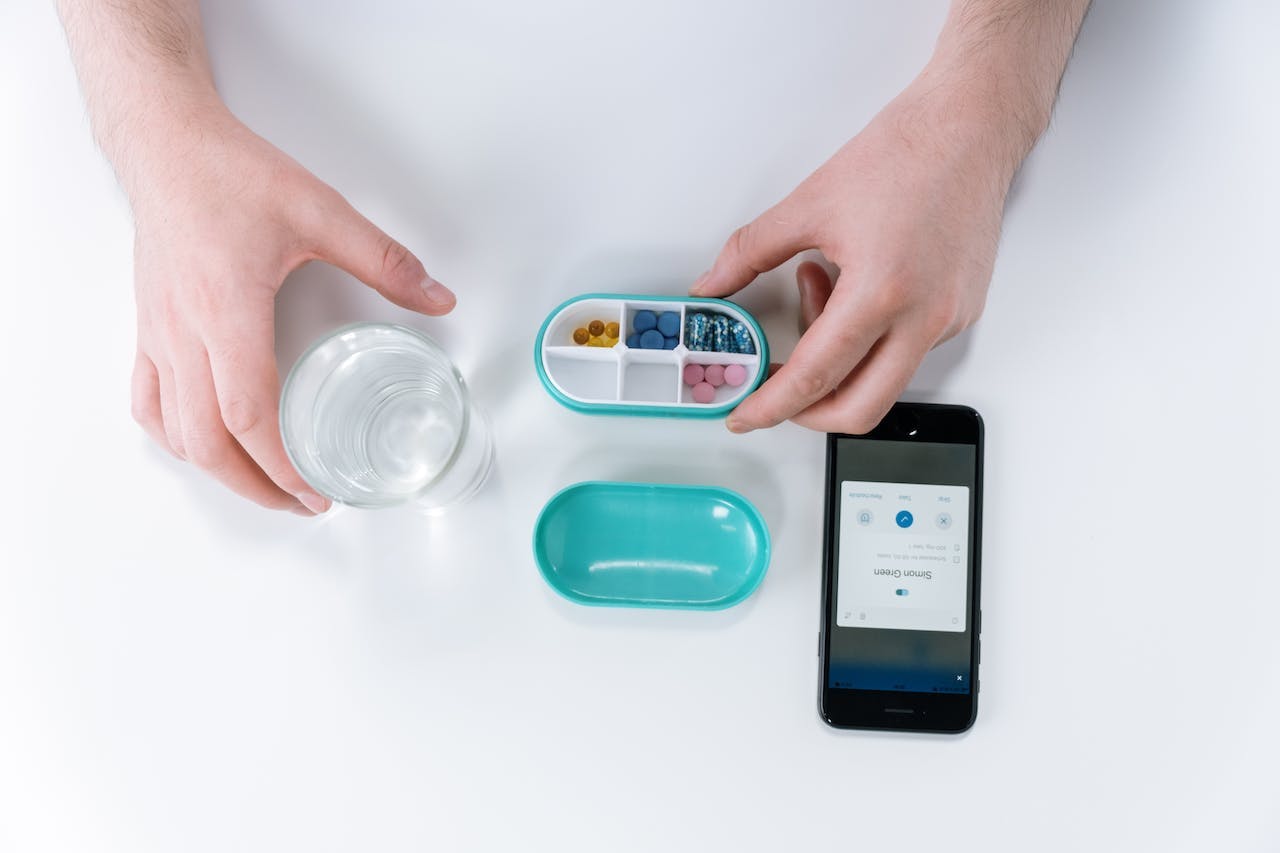
Healthcare Application
Types of healthcare application
After the pandemic, healthcare apps gained popularity among people to take care of their illnesses. So, mobile app in healthcare is used to manage and monitor wellness and fitness issues. For healthcare mobile app development, it is necessary to understand the applications from each other. Now, let's discuss the types of healthcare apps.
Healthcare applications for maintaining healthy lifestyles
This type of healthcare app is usually used for pregnancy patients, baby development, diet monitoring, exercise guide apps, healthy nutrition, and fitness tracking applications. In other words, this type of app helps to instruct the patients and keep them on time for meetings with doctors or physicians. For example, MyFitnesspal is the best example of healthy lifestyles and routines. This app launches in 2005 and get 80 million users. Now, almost have 150 million users and user get healthy recipes, health articles, food and more content.
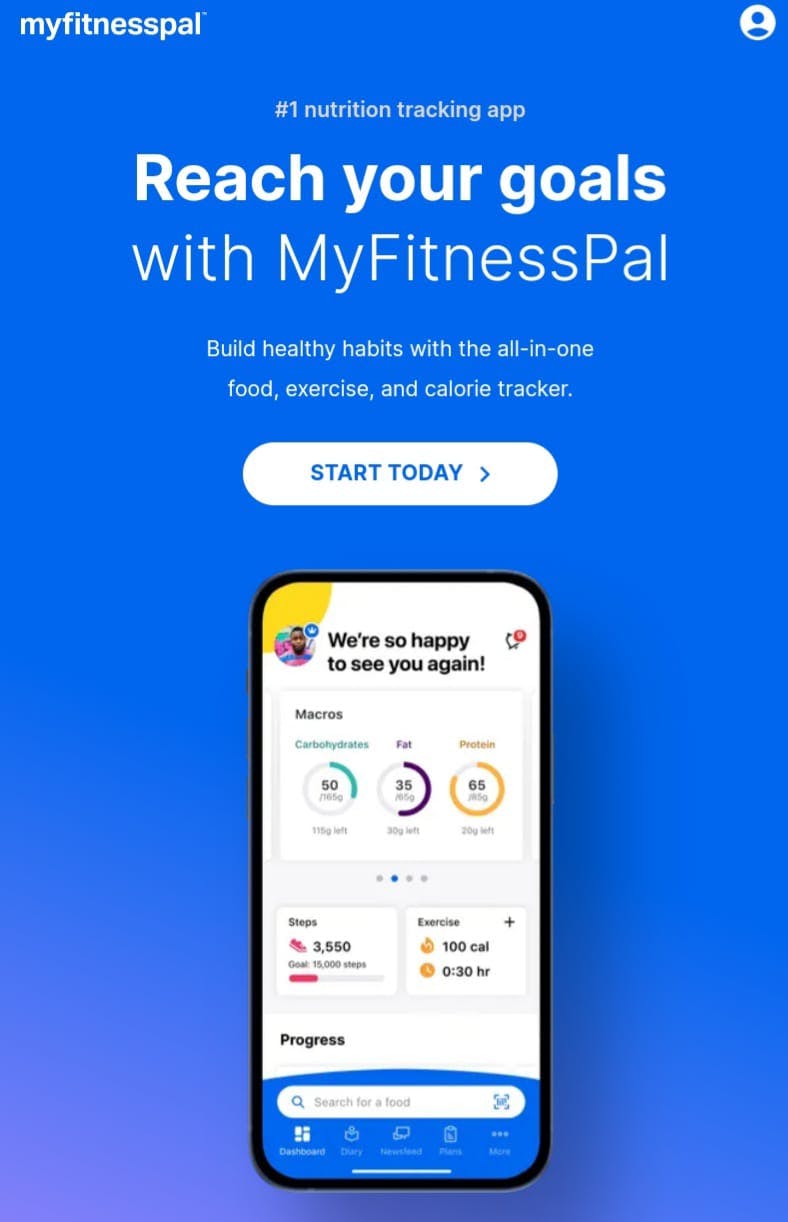
Example: MyFitnessPal
Healthcare apps for clinical and diagnosis purposes
This type of healthcare app gives access to self-health records such as X-rays, electronic chart review, and lab test result and provide information about symptoms. After the Corona pandemic, the usage of this health app is increasing. For example, WebMD is example of diagnosis and clinical and founded in 1996.This application have 179.5 million users right now.
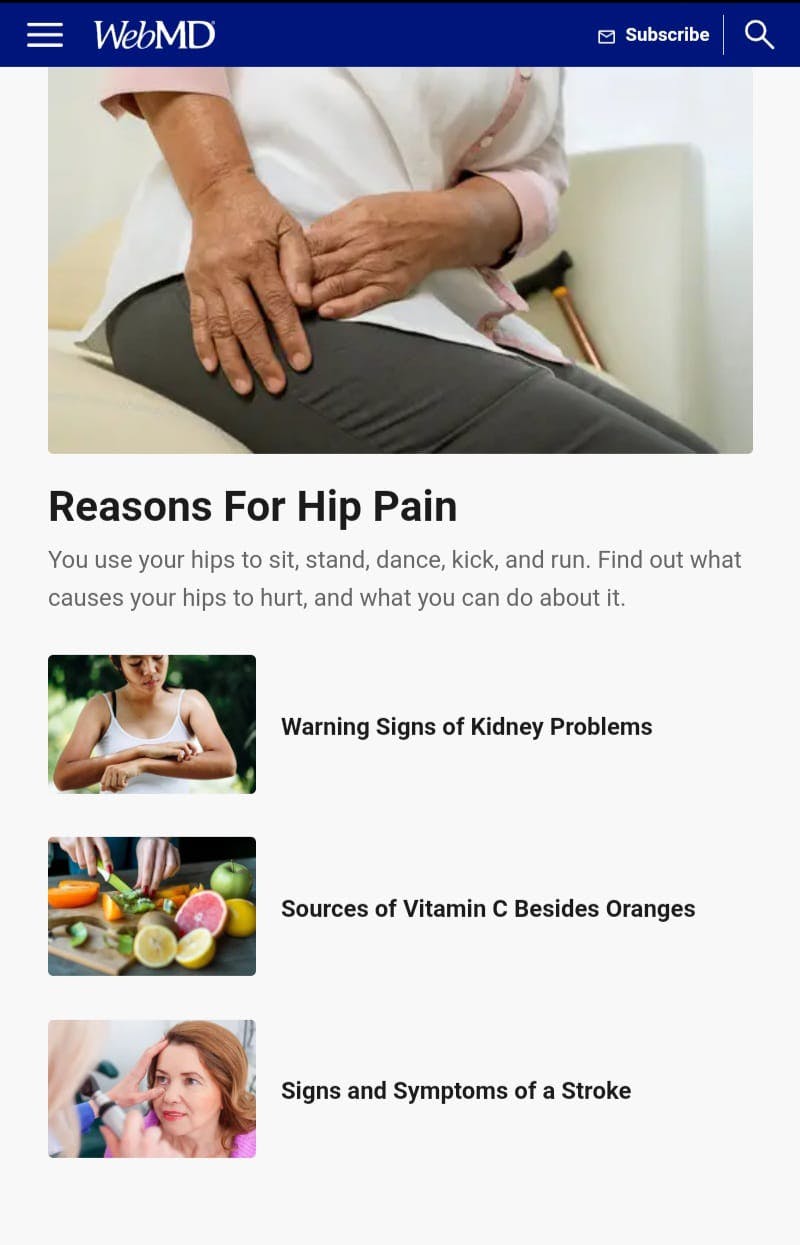
Example: WebMD
Healthcare app for chronic disease management
This app is used for patients with diabetes, lupus, or high blood pressure to monitor their current status. The health app shares data of patients in a readable format by tracking the management system. So they can contact doctors about their condition. For example, the Fitbit app tracks your physical activity while you are sleeping or working and gives you a reminder for your bad conditions. Fitbit has 120 million users worldwide.
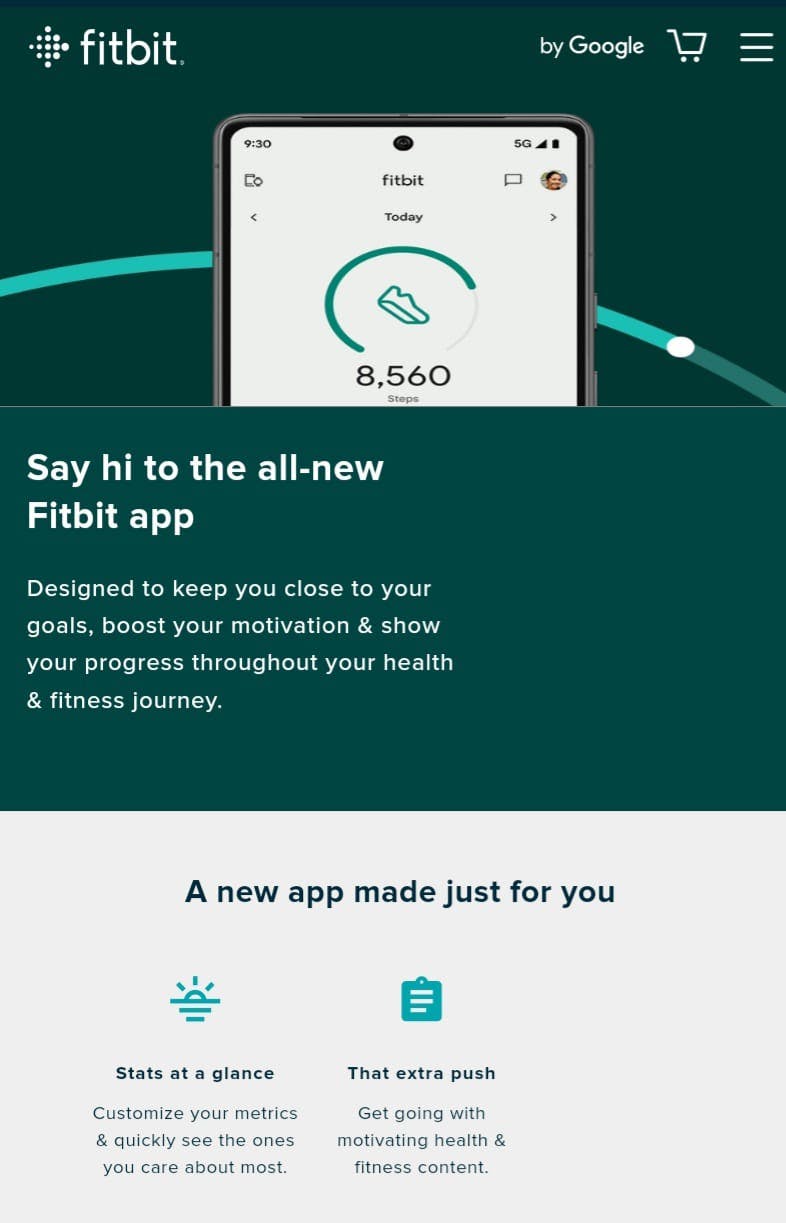
Example: Fitbit
Healthcare apps for medical staff
Medical staff, like nurses and doctors, can share patient records via devices. It helps staff to communicate with each other and gives access to significant data on patients. And it saves time for both patients and doctors. For example, Mychart app, you can manage and schedule appointments, pay your bills, etc. This application has 160 million users who connect with medical staff virtually.
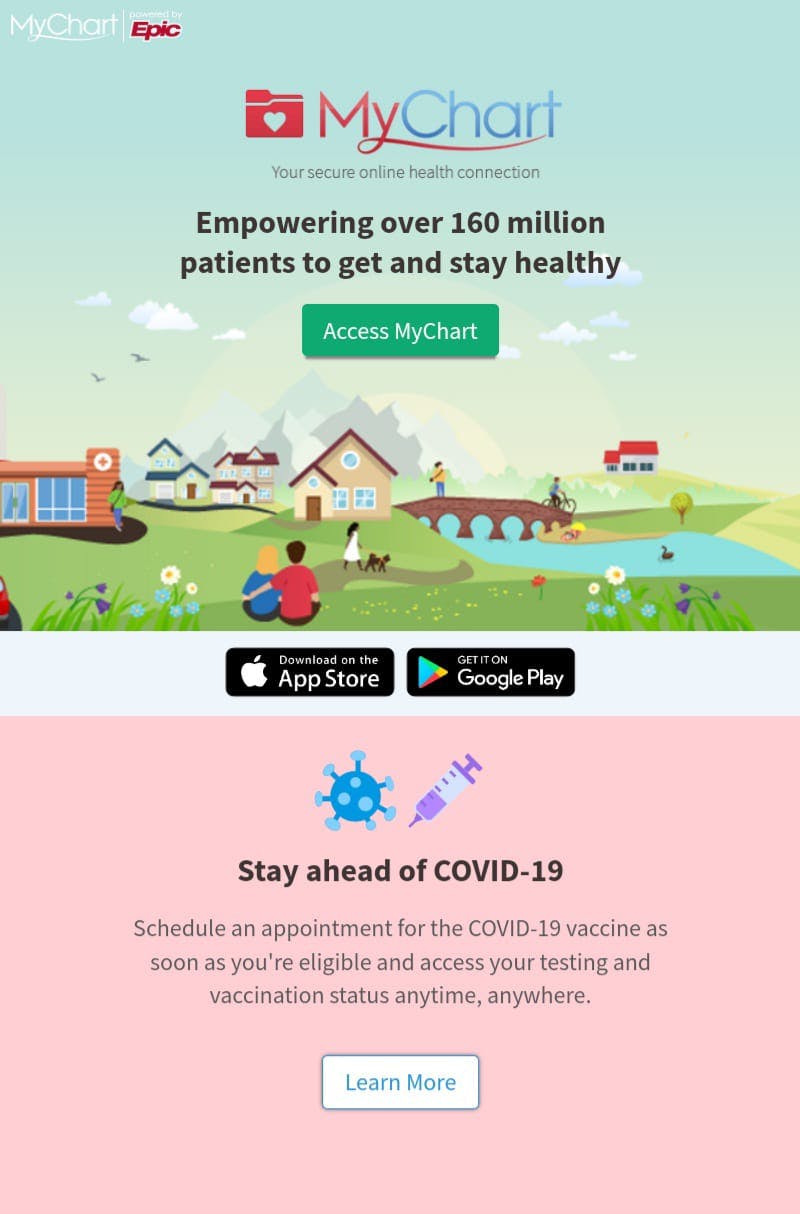
Example: Mychart
Healthcare apps for telemedicine
Telemedicine healthcare apps are popular in the era of the coronavirus pandemic and now. Because of restrictions on going out, this mobile app makes it easy for patients to contact online with doctors. These medical consultation applications provide aid from professional doctors or physicians through video calls or calls and recommend a diagnostic process. For example, the Teladoc app is the best example of telemedicine. This application provides you with professional doctors for your mental health and clinicians and gives treatment for non-emergency situations. Teladoc has 90 million users and has completed 50 million virtual prescriptions.
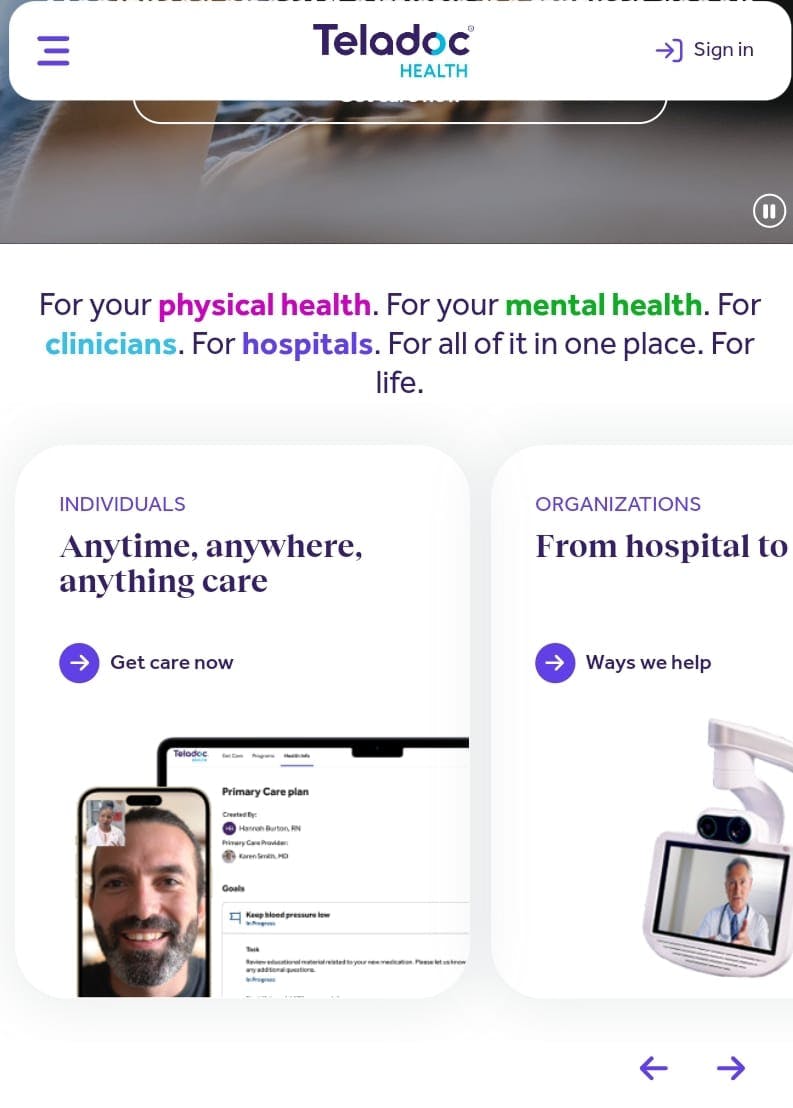
Example: Teladoc
Healthcare apps for mental health
This type of healthcare app is used for patients to relieve stress with mental health tools. Mental health apps can reduce addiction, stress management, meditation, eating disorders, and suicide tendencies that help them with treatment plans. For example, the Moodtools app is designed for patients with depression. It offers 200 tools to relieve stress and has 50 million users.
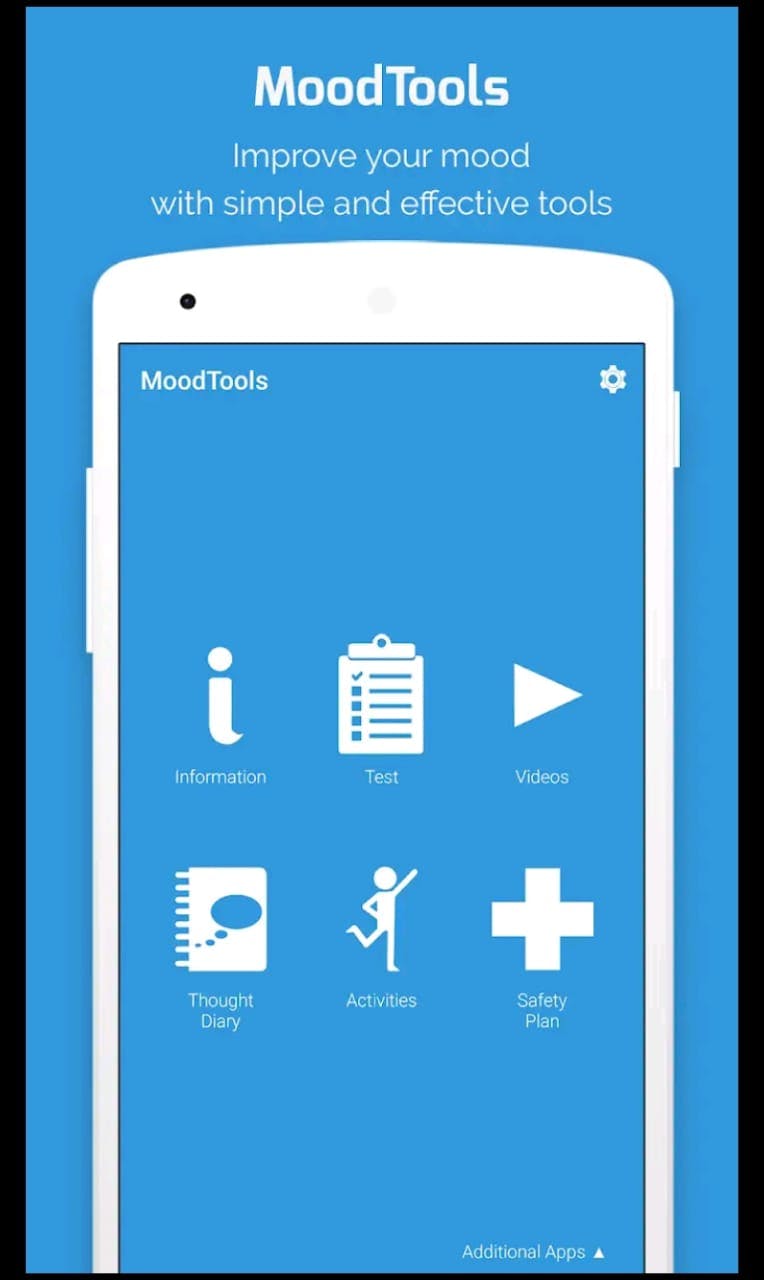
Example: Moodtools
Demand for health apps in the market globally
The outbreak of COVID-19 had a crucial impact on increasing the usage of health applications. That will increase the adaptation of the mobile health app market size to 105.9 billion USD By 2030 over the forecast period. In 2021, the market size of mobile health apps is 43.5 billion USD. Moreover, increasing awareness of lifestyle on fitness and wellness health is a factor that will increase the market size within the coming years. Furthermore, the mobile application segment is divided into fitness and medical applications. Medical health applications increase globally for the betterment of clinical purposes.
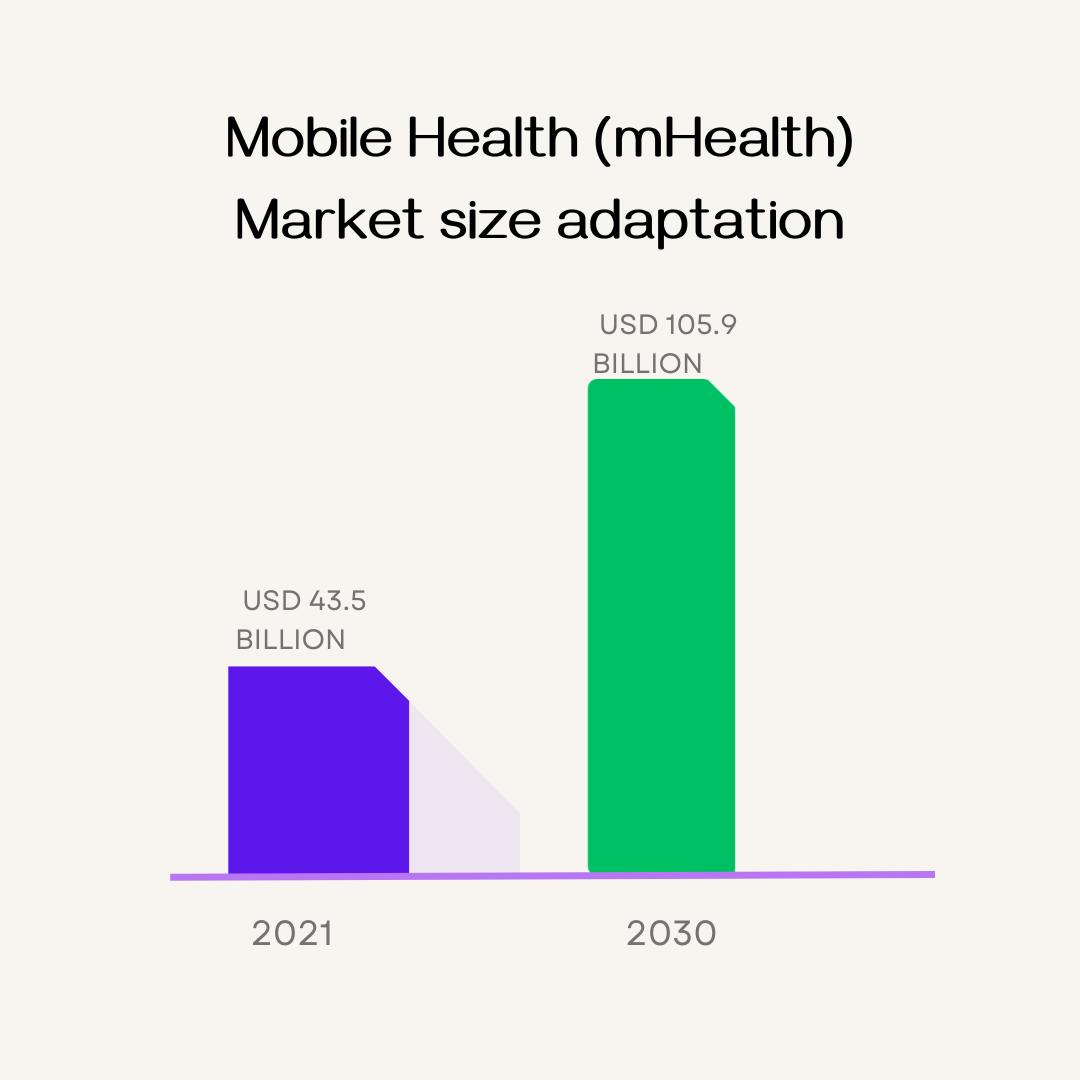
Demand of Health app in the market
Benefits of mobile healthcare app
Healthcare and Telemedicine mobile app adaptation gives a lot of benefits to patients, doctors, healthcare organizations, and caregivers. Some benefits of mobile healthcare applications are below:
Minimize the risk of wrong diagnosis
It is hectic for doctors or physicians to keep the record of patients manually because it has a high risk of diagnostic error. After mobile healthcare apps, it is easy for doctors or physicians to keep records and reduce the risk of diagnostic errors.
Real-time collaboration
A healthcare mobile app for patients is used for real-time communication, collaboration, and consultation that connects doctors worldwide. This mobile app allows doctors to share knowledge around the world in real-time. It has allowed doctors to check the health of patients constantly.
Easy to pay bills
It is not easy to deal with the billing process for both hospital staff and patients. It is a time-consuming process, but with the help of healthcare mobile apps, it can turn down in a few minutes.
Easy to access medical reports
Mobile healthcare apps make it easy for patients to get their medical reports online instead of personally rushing to the hospital. Digital health apps can secure the record without any trouble of misplacing it.
E-prescribing
Mobile healthcare apps provide e-prescribing to patients from their doctors. The physician assists the patient in adjusting the dosage of medicine to prevent side effects.
Access to on-demand healthcare
Healthcare mobile app development provides on-demand services. A regular user can access the on-demand services and get the drug, prescription, and sample collection at their doorsteps.
What are the innovations of Canada in Healthcare apps?
According to the latest research, Canada participates in numerous innovations in healthcare apps and digital health. These health mobile apps are invented in the categories of Telemedicine, EHRs, Mobile health, Health information portals, Virtual care platforms, and health and wellness apps. Here are some examples of these innovations:
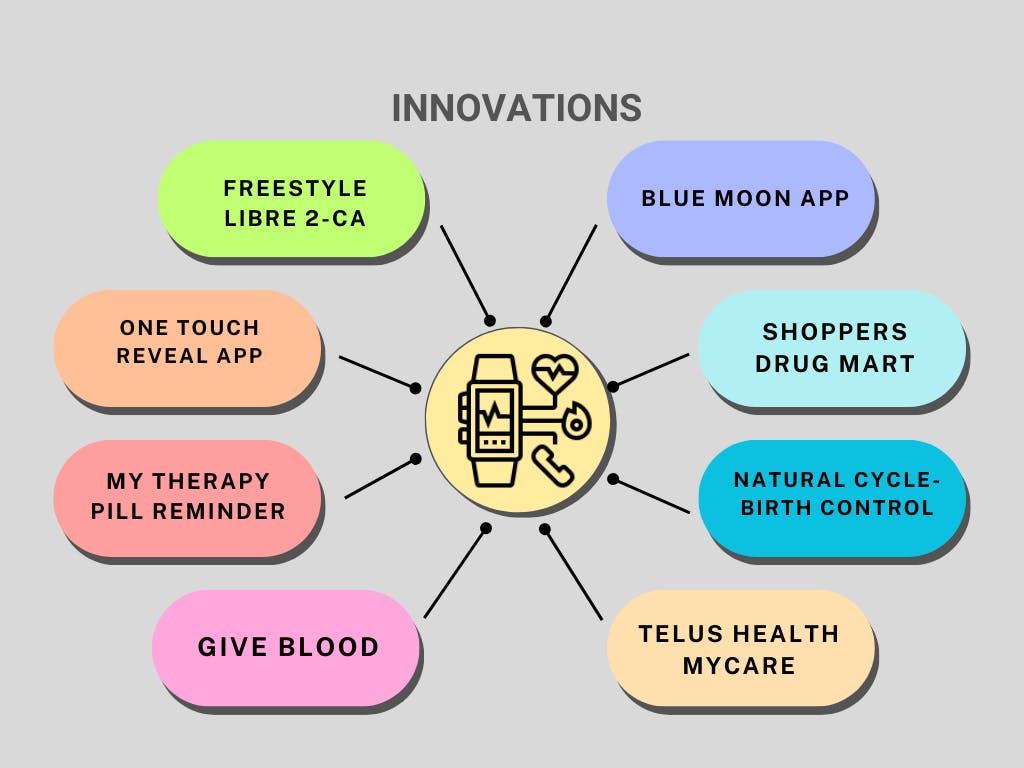
Innovations of Canada in healthcare app
Freestyle Libre 2-CA
The Freestyle Libre 2 app provides complete information on your glucose level. This health app helps you to manage your diabetes by sharing your data with doctors and caregivers. So you get time-to-time checkups.
One touch reveal app
One Touch Reveal app is also a diabetic tool that provides information related to blood sugar levels. This management tool helps you to check your blood sugar level with mobile and share the readings with your physicians and family.
My therapy Pill reminder
My Therapy Pill Reminder is an award-winning app that helps you give pill reminders. With the help of the My Therapy app, you can take your medicine and measure your symptoms on time.
Give Blood
Give Blood is a mobile application for blood services in Canada. This application helps the donor to manage the record of their donations and book the nearest center of the donor to confirm their appointment for blood donations.
TELUS Health Mycare
TELUS Health mobile app helps you to see a psychologist, doctor, dietitian, or physician with one touch of your mobile phone. You can book the consultation online and prescribed by professional doctors through this application.
Natural Cycle- Birth control
Natural cycle is a fertility measure application that calculates the woman's fertility based on her body temperature and menstrual cycle. If a woman follows the instructions carefully, she can conceive within one year.
Shoppers Drug Mart
Shopper Drug Mart is a health app that provides the services of skin care products, medicines, and clinical pharmacies.
Impact of mobile technology on medical health
Mobile technology has a crucial impact on the health sector. As discussed, mobile technology is the game changer in the health industry to develop an application that is useful for both patients and doctors.
Conclusion
Without a doubt, mobile healthcare apps become a crucial part of health sectors after the pandemic. These mobile apps are for patients, doctors, and administrative staff. That can reduce the risk of diagnostic error, time-wasting, etc. Furthermore, Canada is taking part in developing the advanced level of healthcare apps that are user-friendly, efficient, and secure. These apps give numerous benefits like on-call demand, online prescribing, online bill paying, online medical records, and real-time communication.
